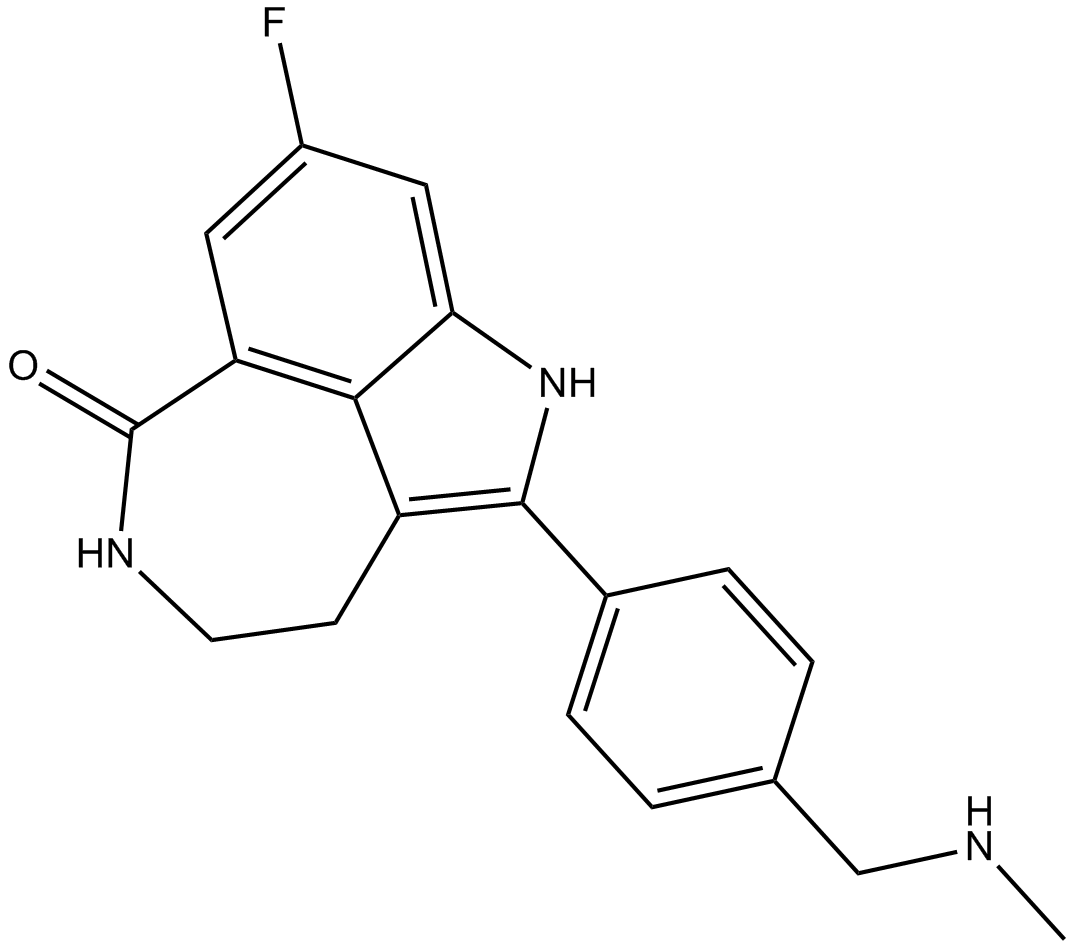Rucaparib (free base) (Synonyms: AG014447) |
| Catalog No.GC13249 |
Rucaparib (free base) (AG014699) is an orally active, potent inhibitor of PARP proteins (PARP-1, PARP-2 and PARP-3) with a Ki of 1.4 nM for PARP1. Rucaparib (free base) is a modest hexose-6-phosphate dehydrogenase (H6PD) inhibitor. Rucaparib (free base) has the potential for castration-resistant prostate cancer (CRPC) research.
Products are for research use only. Not for human use. We do not sell to patients.

Cas No.: 283173-50-2
Sample solution is provided at 25 µL, 10mM.
Rucaparib, also named as AG-014699 or PF-01367338, is a poly (ADP ribose) polymerase (PARP) inhibitor. PARP is a DNA damage-activated nuclear enzyme that has a key signaling role in the base excision repair pathway. So, rucaparib has been also found to be most effective in cells deficient in DNA repair, where the cells deficient are caused by exposure to genotoxic agents, such as irradiation produces DNA damage and its toxicity is augmented when the DNA repair is impaired. Increased radiosensitivity in presence of rucaparib was associated with persistent DNA breaks as determined by gamma-H2AX and p53BP1 foci. Rucaparib radiosensitizes prostate cancer cells, most effectively those that are PTEN-deficient and are expressing ETS gene fusion proteins, which inhibits NHEJ DNA repair.
References
[1].Ruth Plummer, Paul Lorigan, Neil Steven, Lucy Scott, Mark R. Middleton, Richard H. Wilson, Evan Mulligan, Nicola Curtin, Diane Wang, Raz Dewji, Antonello Abbattista, Jorge Gallo, Hilary Calvert. A phase II study of the potent PARP inhibitor, Rucaparib (PF-01367338, AG014699), with temozolomide in patients with metastatic melanoma demonstrating evidence of chemopotentiation.
[2].Payel Chatterjee, Gaurav Choudhary, Warren D. Heston, Eric A. Klein, Alex Almasan. The PARP inhibitor rucaparib radiosensitizes prostate cancer cells, most effectively those that are PTEN-deficient and are expressing ETS gene fusion proteins, which inhibit NHEJ DNA repair. Cancer Research. 2012. 72: B27.
Average Rating: 5 (Based on Reviews and 24 reference(s) in Google Scholar.)
GLPBIO products are for RESEARCH USE ONLY. Please make sure your review or question is research based.
Required fields are marked with *




















